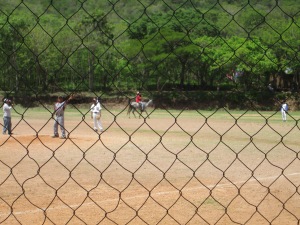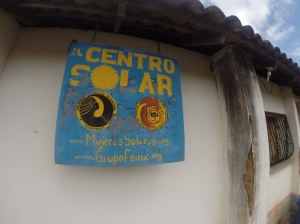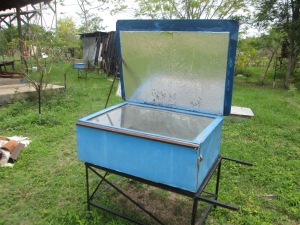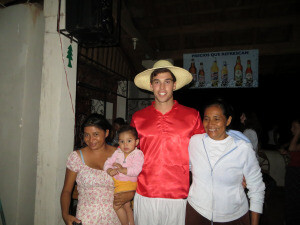
by Lee Mook
The following post is from Lee Mook, a 2014 Global Gap Year Fellow. UNC’s Global Gap Year Fellowship is housed in and staffed by the Campus Y. Find out more about the fellowship on our GGYF Facebook page!
It was the first night I had arrived in Sabana Grande and I was eating dinner with my host family for the first time. We all crowded into their small kitchen to eat, and everyone was talking very quickly and over each other. I was trying so hard to understand what they were talking about I couldn’t even try to join the conversation. They kept looking at me and speaking Spanish, until finally my host mom slowed down and asked where I was from, I responded “yo soy de los Estados Unidos – im from the US.” They all started laughing, and then my host mom told me that they had been told I was from Mexico and they were wondering why I couldn’t speak Spanish fluently. From this point things have gone much more smoothly!
Sabana Grande is a very rural area along the Pan-American Highway between two larger towns Ocotal and Somoto. It is very undeveloped, and almost all of its inhabitants are living along the poverty line, although since the solar center opened standards of living have increased dramatically and are continuing to improve.
Two tips for all those who are planning on living with a host family when they travel to Nicaragua:
1) Bring earplugs or be a heavy sleeper! I have noticed that Nicaraguan people are most definitely morning people! They get up very early and get to work early. It has taken some getting used to, but I can now sleep through sound-effect heavy early morning radio talk shows!
2) Don’t wake up the roosters! If you do it’s like a chain reaction and you will hear what sounds like crying babies for miles upon miles.
My family consists of my mom, dad, one sister and her two daughters, and two brothers. We have already grown very close, and I already feel like part of the family!
My home is a collection five rooms connected by an outdoor hallway, four are bedrooms and one is a kitchen. For breakfast and dinner we all crowd into the small kitchen to talk and eat!
My family recently got a new latrine, and uses a tree stump to stand on while taking bucket showers.
I really lucked out because I live right next to the solar center!
There are always things to do on the weekends or weekday when work ends early. So far I have been:
Learning how to dance
Visiting waterfalls
Hiking on the mountains that surround Sabana Grande
Visiting the town 20 minutes away, Ocotal, to watch the world cup and restock on peanut butter
Playing soccer and watching baseball
And lastly, meeting UNC fans everywhere
When I arrived at the solar center, I discovered that I would not be sending my time installing solar panels. At first I was bummed about the false advertisement, and the fact that I took a class on installing solar panels just for this summer. However I quickly got over it, and discovered that the projects I will be working on this summer have the potential to be as effective, if not more effective, than using solar panels. So although I will not solidify my knowledge about solar panel installation, I hope to learn as much as I can about technologies powered directly from the sun!
My first project is to fix the solar ovens in the community. The solar ovens are insulated boxes of wood and metal that have two panes of glass for sunlight to pass through on the top, and a reflector of aluminum foil attached to the main oven. The ovens use the heat of the sun to cook food without any form of electricity or fuel. They sell them for around $300 each, and besides solar installations the ovens are the solar center’s biggest source of revenue.
In these first three weeks I have certainly learned a lot from my service. One of the largest lessons is that I need to work with the people I am serving. There are a couple half-finished projects here that the community here has no idea how to finish or what to do with because past volunteers haven’t included others in their ideas or work. If I want the work I am doing here to matter I need to make sure I interact with the community.

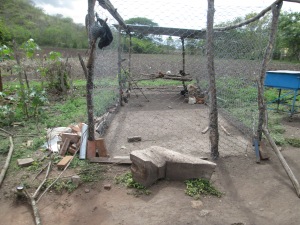

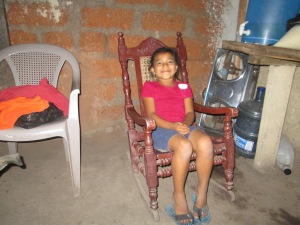

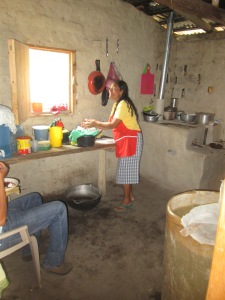






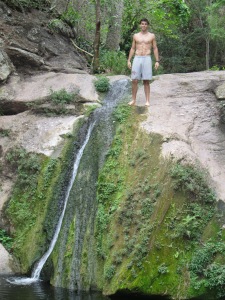

![IMG_0750[1]](http://leetakesontheworld.files.wordpress.com/2014/07/img_07501.jpg?w=300&h=225)


